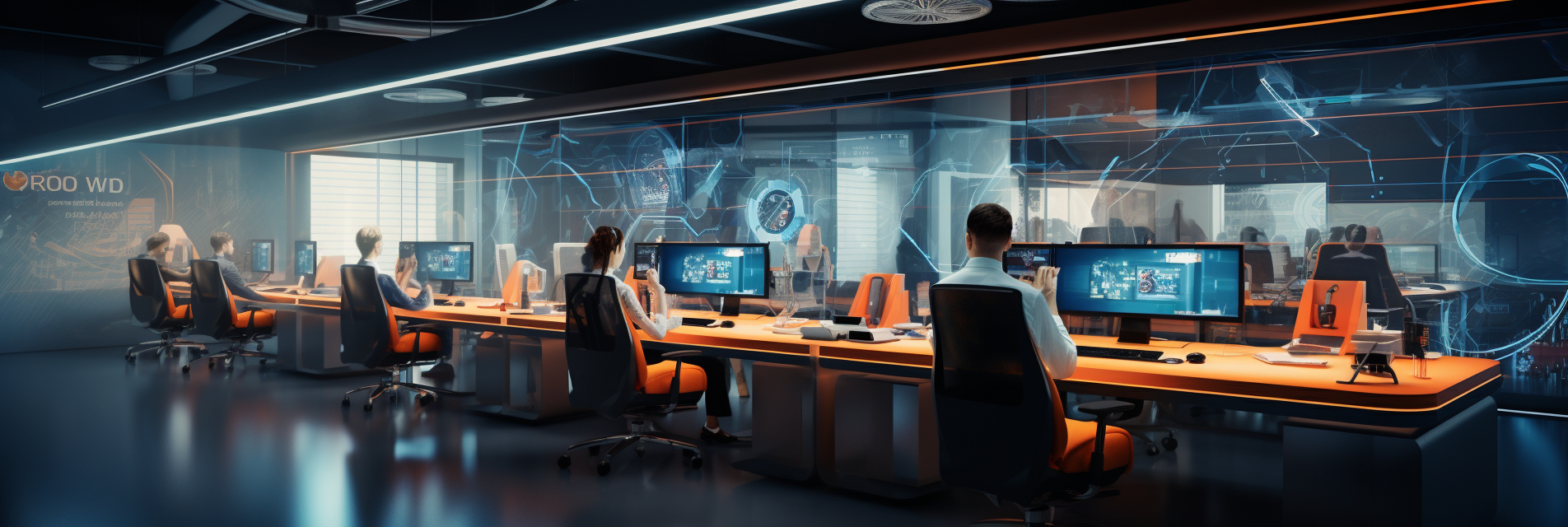
How the Metaverse is going to be the Game Changer For A New World
The metaverse has been a hot topic in recent years, with many experts predicting that it will completely revolutionize the way we interact with the digital world. But what exactly is the metaverse, and how will it change the future?
In this blog post, we’ll explore these questions and more, citing real-world examples and statistics to help paint a clearer picture of this exciting new technology.
At its core, the metaverse is a collective virtual shared space, where users can interact with a computer-generated environment and with other users in real-time. This space is not limited by physical geography, allowing people from all over the world to come together and engage in a wide variety of activities, from gaming to socializing, to virtual commerce.
One of the most significant ways the metaverse will change the future is by creating new opportunities for socialization and collaboration. With more and more people working remotely and socializing online, the metaverse will provide a new way for people to connect and engage with others. In fact, according to a recent survey conducted by Accenture, 64% of consumers believe that the metaverse will be an essential part of their daily lives within the next decade.
The concept of the Metaverse has been around for decades, but it is only recently that it has gained significant attention as a potential game-changer for the future. The Metaverse refers to a fully immersive, digital world that can be accessed and interacted with by users across the globe. The Metaverse is expected to have a significant impact on a wide range of industries, including gaming, social media, and e-commerce.
One of the most significant changes that the Metaverse is expected to bring is the way people interact with each other. In the Metaverse, users will be able to interact with each other in a fully immersive way, rather than through traditional text-based communication methods. This could lead to a more authentic and meaningful form of communication, which has the potential to revolutionize social media.
Real-world examples of the Metaverse can already be seen in virtual worlds like Second Life and Roblox. In these worlds, users can create avatars and interact with each other in a virtual space. Second Life has been around since 2003 and has over 900,000 active users. The platform has its own economy, with users able to buy and sell virtual goods and services using its currency, Linden Dollars. Similarly, Roblox has over 150 million monthly active users and has its own virtual economy, with users able to purchase virtual items using the platform’s currency, Robux.
The Metaverse is also expected to have a significant impact on gaming. Currently, the gaming industry is worth over $160 billion and is expected to continue to grow in the coming years. With the Metaverse, games could become even more immersive and interactive, leading to a potential increase in revenue for gaming companies. Real-world examples of this can be seen in massively multiplayer online role-playing games (MMORPGs) like World of Warcraft and Final Fantasy XIV. These games have millions of active players and have created fully immersive virtual worlds that players can explore and interact with.
Another industry that is likely to be impacted by the Metaverse is e-commerce. In the Metaverse, users will be able to interact with virtual stores and purchase virtual items. This has the potential to create a new type of online shopping experience that is more immersive and engaging than traditional e-commerce. Real-world examples of this can be seen in games like Fortnite and Roblox, where users can purchase virtual items that can be used within the game. Fortnite alone generated over $2.4 billion in revenue in 2018, largely due to its virtual item sales.
However, the Metaverse also brings with it a number of challenges.
One of the biggest challenges is ensuring user safety and privacy. With users able to interact with each other in a fully immersive way, there is the potential for harassment, bullying, and other forms of negative behavior. In addition, there are concerns around data privacy, as users will be providing a significant amount of personal information in order to create their virtual identities.
Another challenge is ensuring that the Metaverse is accessible to everyone. Currently, there are significant barriers to entry, including the cost of hardware and software required to access virtual worlds. In addition, there are concerns around internet access, particularly in developing countries where internet infrastructure is not as developed.
In conclusion, the metaverse has the potential to revolutionize the way we live, work, and interact with each other. It will create new opportunities and challenges that we cannot yet fully comprehend. As the technology develops, it will be important to ensure that it is used in a responsible and ethical manner, so that we can fully realize its benefits while mitigating its potential risks.
Liked this blog? Sign up for our exclusive AI monthly newsletter.
Previous articles

AI 2024: Predictions and Advances in Artificial Intelligence
There’s no doubt 2023 was a landmark year for AI technologies. From healthcare to customer service and beyond, AI transformed the way the average person communicates, works, and solves complex problems. In this article, we’ll delve into the advances and breakthroughs achieved in AI development, as well as the opportunities and challenges that lie ahead […]

AI Call Centers: Turning Customer Support into Customer Experience
When a customer contacts an AI-enabled call center, two things can happen: The customer leaves satisfied with the interaction Their issue is not resolved and they leave with a negative association of your brand Keeping customers satisfied relies on the appropriate use of AI in call centers. This often means centering AI automation as a […]